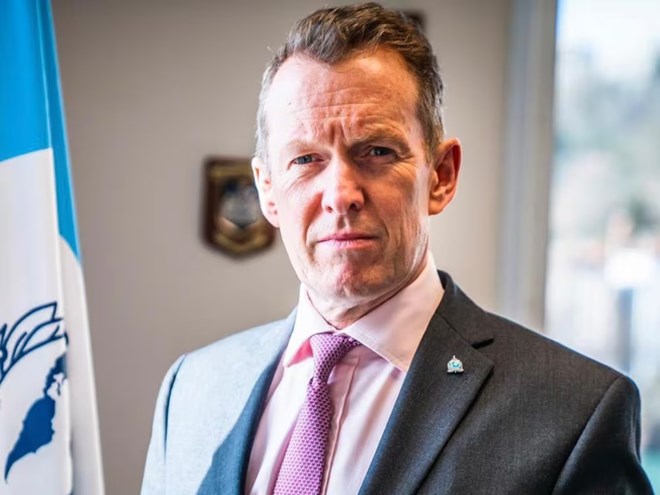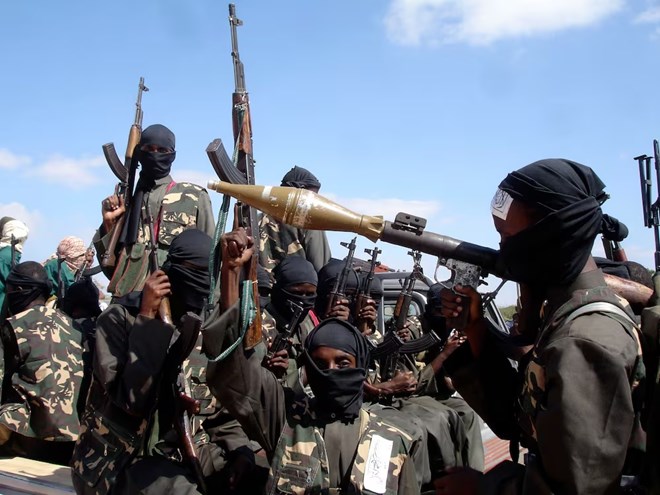
Thursday May 30, 2024
British candidate Stephen Kavanagh calls for cross-border efforts to tackle 'new era' of crime
Stephen Kavanagh is running for secretary general of Interpol in a four-way contest. Photo: Wikimedia Commons
Speaking to an audience including Middle East diplomats in London, Stephen Kavanagh said terrorists are using encryption and corruption to aid their activities as part of a “new era” of cross-border crime.
advertisements
Mr Kavanagh said Al Shabab militants in Somalia raise about $100 million a year through extortion of local taxes and tolls – almost half as much as the Somali government makes.He said the “sophisticated and entrepreneurial fusion” of terrorism and crime is “made more dangerous by the ability of terror and criminal groups to use encryption” to hide their activities and launder money.
Asked by The National how he would tackle these threats, the former London counter-terrorism commander said Interpol could be given access to more biometric data.
He said police should prepare for far-right threats and consider whether climate change could lead to extremism.
“I do not want to see local burglars or graffiti artists put on Interpol biometric systems, but we need to understand this is to be used for the most serious criminality,” Mr Kavanagh said.
“What we have to be able to try and do, with counter-terrorism as much as anything else, is to start predicting and looking for those areas where Interpol is unique, and biometric sharing is one of those.”
Interpol will choose its new secretary general this year, replacing Germany's Jurgen Stock.
Mr Kavanagh is one of four candidates for the job, along with Zambia's Mubita Nawa, Pakistan's Faisal Shahkar and Brazil's Valdecy Urquiza.
The head of the 196-country agency oversees its global police databases, specialist investigative teams and its red notices for wanted fugitives.
However, Interpol's budget is fairly small and it has no powers to make arrests or issue red notices unless requested by an individual country.
In his pitch at Britain's Royal United Services Institute, Mr Kavanagh appealed for a new “global mindset” in tackling crime.
He said “ageing law enforcement models” mean police chiefs focus on reacting to events and receive no credit for preventing crime off their patch.

Armed Al Shabab fighters in Mogadishu, Somalia. The Al Qaeda-linked terrorist group has controlled parts of the country for years. AP
“The international community can no longer view policing as a mainly domestic, reactive, blue-light service,” he said.
“A global crime epidemic needs to be met with a proportionate global response. If we can adopt a global mindset for disease, climate change and extreme poverty, I believe we can do that for this new era of crime.”
Mr Kavanagh, currently Interpol's executive director of police services, assured diplomats the agency is not seeking “control” but wants to see countries “connecting, communicating and co-ordinating”.
Describing Interpol's budget as smaller than that of Essex Police, the force he used to run in the east of England, he called for the “ethical” involvement of the private sector and its own investigative technology.
He said Interpol must remain neutral at a time when conflicts in the Middle East, Ukraine and Africa are “polarising opinion” and threatening global co-operation.
Africa is particularly vulnerable to modern criminal tactics with as many as 90 per cent of companies facing cyber security threats, he warned.
He said the terrorist threat in Somalia means there are prisoners who will at some point be released and need assessing for any continued threat. Al Qaeda-linked Al Shabab has controlled parts of Somalia for years, fought its internationally recognised government and allied with pirates on Africa's coast.
Around the world Interpol could also help share experience in deradicalisation and understand emerging terrorist threats, Mr Kavanagh said.
“We're seeing the extreme violent right manifesting across the world into different forms. We have to be ready to understand whether or not the next step around violent extremism will be climate, environment.”